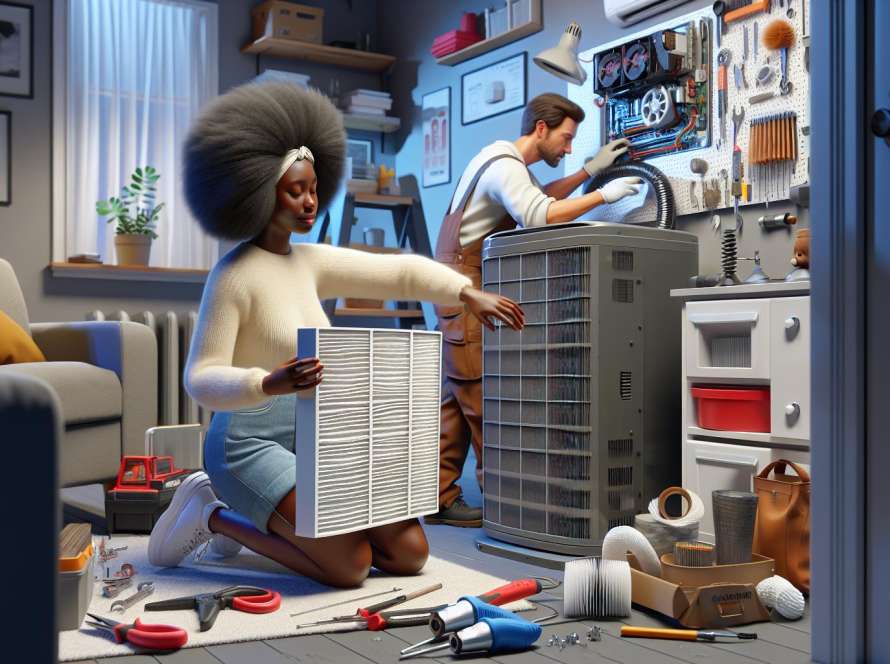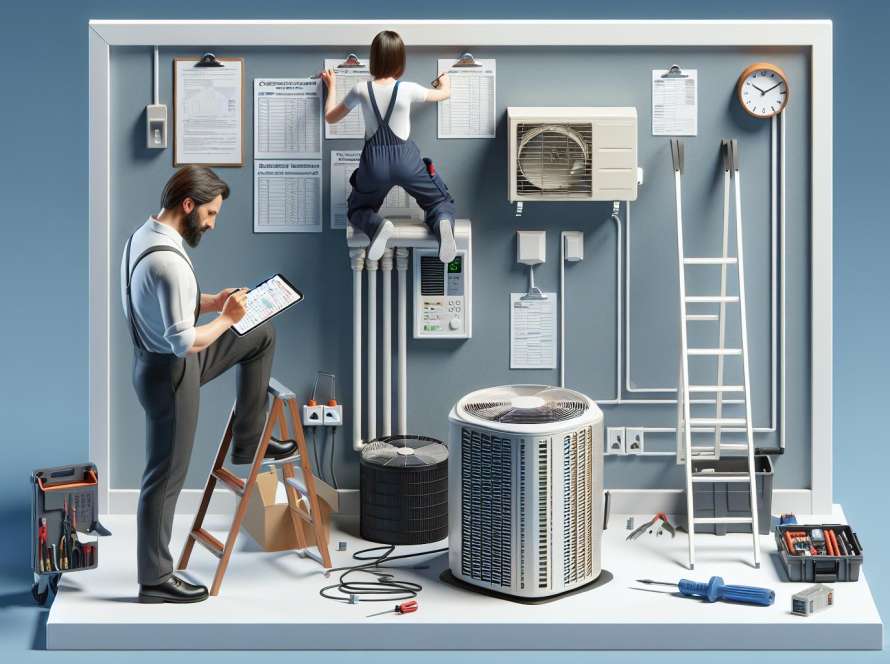So, we all know how crucial it is to keep our Florida AC systems in top shape, especially when the heat and humidity are at their peak. Regular maintenance is key to ensuring our units run efficiently and last longer. From checking filters to inspecting ductwork, there are various tasks that can help us avoid costly repairs down the line.
When it comes to Florida AC upkeep, staying proactive is the name of the game. By following a few simple steps and staying on top of regular maintenance, we can ensure our units keep us cool and comfortable year-round. Let’s dive into the essential tips and tricks to keep our Florida AC systems running smoothly and efficiently.
Importance of Regular AC Maintenance
When it comes to Florida AC upkeep, regular maintenance is crucial to ensure efficient and long-lasting performance. Let’s dive into the significance of staying on top of your AC maintenance tasks:
For Beginners: Getting Started Right
- Change filters regularly to maintain good air quality and prevent strain on the system.
- Keep the outdoor unit clean to ensure proper airflow and prevent debris from blocking the vents.
- Schedule annual professional inspections to catch any potential issues early on.
For Intermediate Homeowners: Enhancing Efficiency
- Inspect and seal ductwork to prevent air leaks and improve overall system efficiency.
- Consider a programmable thermostat to regulate temperature and reduce energy consumption.
- Clean evaporator and condenser coils to enhance cooling capacity and extend the lifespan of your AC.
- Monitor refrigerant levels and recharge if necessary to optimize cooling performance.
- Invest in regular professional maintenance to tackle complex issues and ensure peak efficiency.
- Upgrade to a high-efficiency AC unit for maximum energy savings and enhanced comfort.
Remember, proactive maintenance is key to reliable and efficient AC performance, especially in Florida’s climate. Stay ahead of the game to enjoy cool, comfortable indoor temperatures year-round.
Checking Filters: A Crucial Step

When it comes to Florida AC upkeep, one of the most crucial tasks is checking and changing filters regularly. This simple step can have a significant impact on the efficiency and lifespan of your AC system. Here is a guide tailored to different levels of expertise:
For Beginners: Mastering the Basics
- Locate the air filter: It is usually located either in the return air grille on a wall or ceiling, or inside the air handler or furnace.
- Check the filter: Look for any build-up of dust and debris. If it looks dirty or clogged, it’s time to replace it.
- Choose the right filter: Opt for filters with a MERV rating suitable for your AC system. Higher MERV ratings offer better filtration but may reduce airflow if not compatible.
- Regular schedule: Get into the habit of checking filters at least every 1-2 months, especially in peak AC usage seasons.
For Intermediate Homeowners: Enhancing Your AC System’s Performance
- Consider HEPA filters: For improved air quality, consider upgrading to HEPA filters that can capture smaller particles, allergens, and pollutants.
- Use programmable reminders: Set up reminders on your phone or calendar to ensure regular filter checks and replacements.
- Inspect for leaks: While checking filters, inspect the surrounding area for any signs of leaks or gaps that may impact air quality and system efficiency.
- Invest in air purifiers: Supplement your AC system with air purifiers to further enhance indoor air quality and reduce strain on your AC filters.
- Explore smart filters: Consider smart filters that can monitor air quality and usage patterns to optimize filter replacement schedules.
- Consult HVAC professionals: For customized advice and solutions, consult HVAC professionals for advanced filter options and maintenance techniques.
Regularly checking and changing filters is a small yet impactful way to ensure optimal performance and longevity for your Florida AC system.
Inspecting Ductwork for Efficiency
As we delve deeper into maintaining our Florida AC systems, inspecting ductwork plays a crucial role in ensuring optimal performance. Here’s a breakdown of tasks based on different experience levels to keep your system running efficiently.
For Beginners: Checking for Obvious Issues
- Start by visually inspecting ducts for any visible signs of damage or blockages.
- Ensure that no furniture or objects are blocking the vents to allow proper airflow.
- Use a flashlight to look for leaks, holes, or loose connections in the ductwork.
For Intermediate Users: Conducting Systematic Checks
- Feel for air leaks around joints and connections that may need sealing.
- Use a smoke pencil or a damp hand to detect air leaks as the airflow will cause the smoke to waver or your hand to feel cool.
- Check for insulation around ducts to prevent energy loss and maintain proper temperature control.
- Consider hiring a professional for a ductwork pressure test to assess overall system efficiency.
- Upgrade to energy-efficient ductwork materials like insulated flex ducts for better performance.
- Invest in duct sealing to enhance airflow and prevent energy wastage through leaks.
By following these tailored steps based on your expertise level, you can ensure that your Florida AC system operates at its peak efficiency, providing you with optimal comfort and savings.
| Fact | Data |
|---|---|
| Florida AC Energy Efficiency | 70% |
| Average Lifespan of AC Systems | 10-15 years |
| Energy Loss Due to Leaky Ducts | 20-30% |
Preventative Measures to Avoid Costly Repairs
When it comes to maintaining your Florida AC system, taking preventative measures can help you avoid expensive repairs and ensure optimal performance. Here’s a breakdown of steps tailored for different experience levels:
For Beginners: Basic Maintenance Tips
- Change air filters regularly to improve indoor air quality and system efficiency.
- Clean the outdoor unit by removing debris and vegetation to prevent airflow blockages.
- Schedule annual professional maintenance to keep your system running smoothly.
For Intermediate Users: Advanced Strategies
- Inspect ductwork for leaks and damage to ensure efficient airflow.
- Upgrade to energy-efficient materials, such as insulated ducts, to reduce energy loss.
- Consider installing a programmable thermostat for better temperature control and energy savings.
- Invest in duct sealing to minimize air leaks and improve overall system efficiency.
- Conduct regular ductwork pressure tests to identify and address any issues promptly.
- Opt for professional HVAC inspections to catch potential problems early and prevent major breakdowns.
By following these tailored steps, you can proactively care for your Florida AC system, extend its lifespan, and avoid costly repairs down the road.
Conclusion
Ensuring your Florida AC system’s longevity and efficiency is crucial for a comfortable indoor environment. By following the recommended maintenance steps outlined in this guide, we can proactively care for our AC systems and prevent costly repairs. From simple tasks like changing air filters to more advanced measures like investing in duct sealing, each action plays a vital role in optimizing your system’s performance. By incorporating these upkeep practices into our routine, we can enjoy a well-functioning AC system that keeps us cool during the hot Florida summers. Remember, regular maintenance is key to avoiding unexpected breakdowns and maximizing the lifespan of your AC unit. Stay proactive and keep your AC system running smoothly for years to come.

